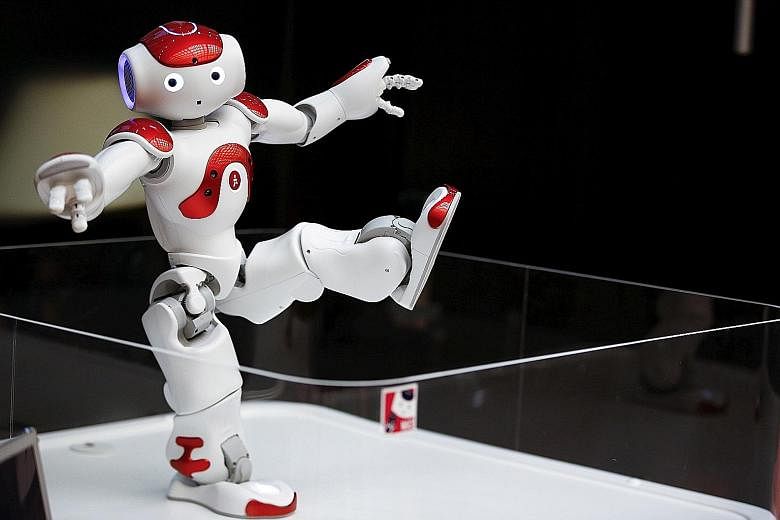MUNICH • Europe's growing army of robot workers could be classed as "electronic persons" and their owners liable to paying social security for them if the European Union adopts a draft plan to address the realities of a new industrial revolution.
Robots are being deployed in ever greater numbers in factories and taking on tasks such as personal care or surgery, raising fears over unemployment, wealth inequality and alienation.
Their growing intelligence, pervasiveness and autonomy require rethinking everything from taxation to legal liability, a draft European Parliament motion dated May 31 suggests.
Some robots are even taking on a human form. Visitors to the world's biggest travel show in March were greeted by a lifelike robot developed by Japan's Toshiba and were helped by another made by France's Aldebaran Robotics.
But Germany's VDMA, which represents companies such as automation giant Siemens and robot maker Kuka, says the proposals are too complicated and too early.
German robotics and automation turnover rose 7 per cent to €12.2 billion (S$18.5 billion) last year and the country is keen to keep its edge in the latest industrial technology. Kuka is the target of a takeover bid by China's Midea.
The draft motion calls on the European Commission to consider "that at least the most sophisticated autonomous robots could be established as having the status of electronic persons with specific rights and obligations".
It also suggests creating a register for smart autonomous robots, which would link each one to funds set up to cover its legal liabilities.
Mr Patrick Schwarzkopf, managing director of VDMA's robotic and automation department, said: "That we would create a legal framework with electronic persons - that's something that could happen in 50 years but not in 10 years."
He said there was no proven correlation between increasing robot density and unemployment, pointing out that the number of employees in the German automotive industry rose by 13 per cent between 2010 and last year, while industrial robot stock in the industry was up by 17 per cent in the same period.
The motion faces an uphill battle to win backing. Even if it does get enough support to pass, it would be a non-binding resolution as the Parliament lacks the authority to propose legislation.
REUTERS

